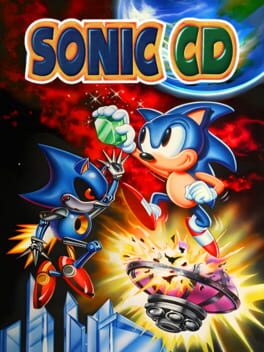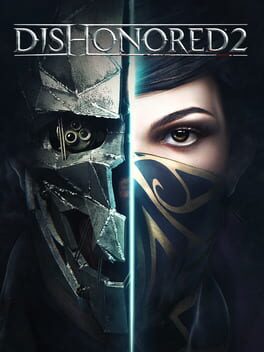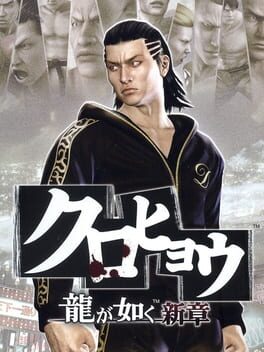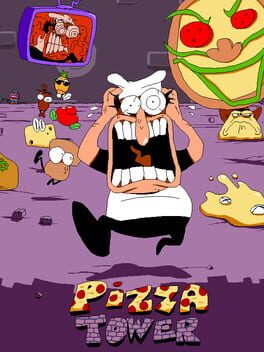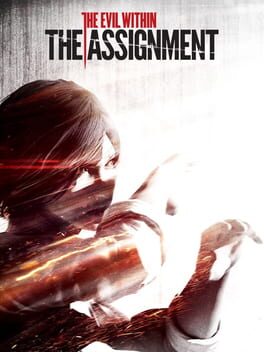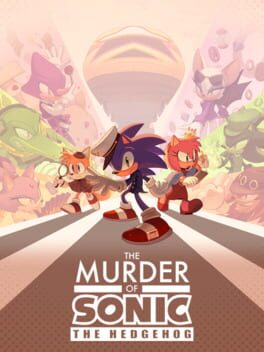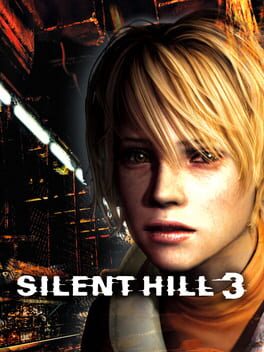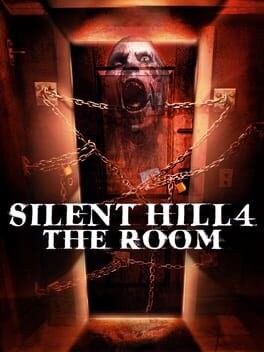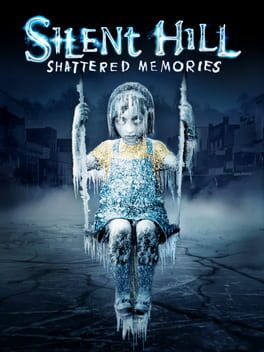MrGreM
46 reviews liked by MrGreM
Sonic CD
1993
A Sonic game that was able to expand some of its limitations, thanks to utilizing the Sega CD add-on. This granted more animation frames for Sonic, higher quality music, and much larger stages. The latter is the most detrimental aspect, in my opinion, and that's because they seemingly designed this game to be more about exploring the stages, rather than clearing the course as quickly as you can.
I personally did not enjoy this aspect of the level design, and it really ruins a lot of the fun I could potentially be having with what is otherwise a 2D Sonic game that feels good to play that also boasts great animation and music. The boss fights also feel lackluster, most especially the final boss. Racing Metal Sonic was the most exciting the game got for me.
I personally did not enjoy this aspect of the level design, and it really ruins a lot of the fun I could potentially be having with what is otherwise a 2D Sonic game that feels good to play that also boasts great animation and music. The boss fights also feel lackluster, most especially the final boss. Racing Metal Sonic was the most exciting the game got for me.
Shenmue
1999
shenmue may require no introduction, but it's amusing for me to have played so many of suzuki's games beforehand...they're all these exceptionally spirited games preoccupied with total acceleration, scenic vistas, the simple pleasures of competition (whether inward or external). their pace and their fixations are romantic and idealized, representing a striking antithesis to shenmue's monotony. just about the only thing that matches shenmue's dreamy sense of melancholy is outrun's results screen.
while suzuki's prior obsessions & formal language might ironically seem entirely absent from shenmue, im not sure this is a completely accurate assessment. ryo might be a slave to time, but just as in outrun, super hang-on, space harrier, etc, his path is pre-determined, foretold by prophecy. he has no choice but to staunchly and pragmatically follow his compulsions. a discordant sense of urgency underscores and animates his every action, and you can see his internal frustrations with the mundane & lackadaisical rhythms of his neighbours. ryo's a shark, all he knows how to do is move forward. reality might suffocate him otherwise.
iwao hazuki's last words to his son are pleading with him to keep his friends and family close to him; the rest of shenmue is a quietly straining, slow-brewing tragedy as ryo does the exact opposite. he's alienated and alone; his family never quite knows how to effectively respond to and treat his grief; he distances himself from peers, structure, romantic interests. he is made painfully aware of every passing minute of every day, but he fails to truly understand or comprehend the weight of time and of his life in yokosuka as a whole. people care about him, but he's distant & removed, and eventually they figure it may be for the best to let such a headstrong young man go his own way. ryo's defining contradiction is a naïveté characteristic of his youth at odds with his relentless drive to make forward progress. he has this unspoken expectation that yokosuka is comprised of unchanging and permanent fixtures, that things will be the same as he left them upon his return, but everything around him explicitly and implicitly signals the obvious: people, locales, and contexts change. over the course of the game ryo runs into a hot dog vendor named tom constantly, someone whose vibrance and zest for life marks him as distinct and dissimilar from ryo. he's content and lively in a way that is alien to ryo. near the end of the game, he learns that tom a.) has surprising martial arts prowess and b.) has been planning to leave yokosuka for quite some time. ryo is taken aback by this information, but it was no secret - ryo simply never asked. by the time ryo makes his way to hong kong, so much has been left unsaid. even he, for a brief moment, just beginning to grasp the gravity of his decisions, wishes he had more time.
it's an excellent game, filled to the brim with quietly devastating scenes and working with subtlety that seems unmatched compared to contemporary AAA experiences... while many cite shenmue as a game that has aged, or only has value from an innovative perspective, its deliberate and measured inclinations reveal just the opposite: that games today have regressed, and have only taken the wrong lessons from shenmue.
while suzuki's prior obsessions & formal language might ironically seem entirely absent from shenmue, im not sure this is a completely accurate assessment. ryo might be a slave to time, but just as in outrun, super hang-on, space harrier, etc, his path is pre-determined, foretold by prophecy. he has no choice but to staunchly and pragmatically follow his compulsions. a discordant sense of urgency underscores and animates his every action, and you can see his internal frustrations with the mundane & lackadaisical rhythms of his neighbours. ryo's a shark, all he knows how to do is move forward. reality might suffocate him otherwise.
iwao hazuki's last words to his son are pleading with him to keep his friends and family close to him; the rest of shenmue is a quietly straining, slow-brewing tragedy as ryo does the exact opposite. he's alienated and alone; his family never quite knows how to effectively respond to and treat his grief; he distances himself from peers, structure, romantic interests. he is made painfully aware of every passing minute of every day, but he fails to truly understand or comprehend the weight of time and of his life in yokosuka as a whole. people care about him, but he's distant & removed, and eventually they figure it may be for the best to let such a headstrong young man go his own way. ryo's defining contradiction is a naïveté characteristic of his youth at odds with his relentless drive to make forward progress. he has this unspoken expectation that yokosuka is comprised of unchanging and permanent fixtures, that things will be the same as he left them upon his return, but everything around him explicitly and implicitly signals the obvious: people, locales, and contexts change. over the course of the game ryo runs into a hot dog vendor named tom constantly, someone whose vibrance and zest for life marks him as distinct and dissimilar from ryo. he's content and lively in a way that is alien to ryo. near the end of the game, he learns that tom a.) has surprising martial arts prowess and b.) has been planning to leave yokosuka for quite some time. ryo is taken aback by this information, but it was no secret - ryo simply never asked. by the time ryo makes his way to hong kong, so much has been left unsaid. even he, for a brief moment, just beginning to grasp the gravity of his decisions, wishes he had more time.
it's an excellent game, filled to the brim with quietly devastating scenes and working with subtlety that seems unmatched compared to contemporary AAA experiences... while many cite shenmue as a game that has aged, or only has value from an innovative perspective, its deliberate and measured inclinations reveal just the opposite: that games today have regressed, and have only taken the wrong lessons from shenmue.
Dishonored 2
2016
Dishonored 2, the ambitious sequel.
There are multiple high concept ideas explored throughout Dishonored 2. Many games would be content with only one.
There are the much talked about Clockwork and Stilton mansions. The formers level design is wonderfully confusing at first as it centres around altering the layout, it's up to the player how best to utilise the changing environment.
The latters timeshifting mechanic shines, letting the player jump between time periods and crucially having access to a window into the opposite. This sets the player up to exploit both enemies and the architecture.
In both instances it must have been a major development hurdle, not only functionally but to get it all working so seemlessly.
Level design generally is top notch.
Even more traditional levels throw curve balls like the Dust District which sets up two warring factions you will have to manouver between and potentially side with one or another.
Interweaving and multi-layered levels let you gradually build up a mental map and leave open multiple approaches. All wrapped up in the classic imsim tradition of internally consistent rulesets. The items on sale in the black market shops really are just sitting there and you instantly get the sense that there are ways behind the counter to literally steal them. Heavily context sensitive triggers exist but are largely shuned in favor of simply letting the player work within the playspace.
One moment that encapsulates this player driven problem solving was when I decided to try attaching a stun mine to a bloatfly and turned it into an effective drone.
Playstyles are enhanced by the games skill shop, by picking up runes scattered throughout levels you can spec into a variety of roles. It quickly became evident that I had no use for pistol upgrades (went for powers, stealth no kills playthrough) but it is clear there is a wealth of options if the player wants to mix things up and I look forward to trying a more combat focused approach. Even though I always aimed for no kills or detection I tried to not rely on save scumming too much and embraced "screw ups" as much as possible and this was rewarded with some dynamic events such as barging into a guard who discovered me, sending him tumbling over a railing as I snuck away from the scene of the crime.
Thankfully a "no power" run is contextually acknowledged by the game as you can pass up the Outsiders Mark. I can imagine this would be tough but satisfying as the player will have to rely more so on other elements like gadgets and distraction techniques, whether for stealth or offence. Just more playstyles on the table.
I was surprised how invested I got in the world of Dishonored 2. The art style is stunning and vividly, almost literally paints a harsh yet beautiful world. Details regarding power generation via wind and whale are very much felt but so are the more personal details like finding the workshop of the person who sculpted most of the statues you find throughout the Karnaca and of course one of the main antagonists (Jindosh) inventions are never very far away.
My only real issues being that of many guards operating in very small routes, a few more longer routes could really have put the player, especially those looking to go undetected under pressure to observe and learn their routes. Interrogation options are conspicuously absent which could have alleviated the need to find and read so many documents to find clues. Thankfully guards do seem to sometimes look for their strangely absent collegues but more often than not a perpetually knocked out guard will never be found. Non lethal options being practially identical to lethal is a bug bear with me and Dishonored 2 falls into this trap although at least there are options for longer activation time for sleep darts and you always have the option for attempting maximum avoidance anyway. Other than that there was a fairly frequent graphical glitch that caused green lights to flicker on screen.
In terms of the narrative, it really hinges on the machinations of the big players you are tasked with taking down one way or another and they do not dissappoint. Each has a unique personality and motivations, they are (mostly) mortal so operate under the same rules as any guard so taking them out can be done any which way. Narratively though there is always another approach beyond a kill which has far more steps, yet also provides more satisfying plot repercussions in my opinion. Still, a creative kill is just as valid.
I played as Corvo on this run. While he plays a fairly standard role of protector/saviour, he also has a more direct connection to Serkonos as he was born and brought up there. This sells the depth of the game world where it is clear how much exists outside the famous Dunwall. The fact that the plight of Karnaca which has been suffering under the new Duke is partly laid at the feet of Corvo and Emily was a nice touch. It adds an element of realism to the institutions and prevents Corvo and Emily coming off as squeky clean protagonists. I look forward to playing as Emily and seeing how things play out differently.
Overall I was thouroughly impressed by Dishonored 2. It combines rich level design and scenarios with sandbox player driven mechanics, all wrapped up in a compelling narrative and beautiful artsyle.
There are multiple high concept ideas explored throughout Dishonored 2. Many games would be content with only one.
There are the much talked about Clockwork and Stilton mansions. The formers level design is wonderfully confusing at first as it centres around altering the layout, it's up to the player how best to utilise the changing environment.
The latters timeshifting mechanic shines, letting the player jump between time periods and crucially having access to a window into the opposite. This sets the player up to exploit both enemies and the architecture.
In both instances it must have been a major development hurdle, not only functionally but to get it all working so seemlessly.
Level design generally is top notch.
Even more traditional levels throw curve balls like the Dust District which sets up two warring factions you will have to manouver between and potentially side with one or another.
Interweaving and multi-layered levels let you gradually build up a mental map and leave open multiple approaches. All wrapped up in the classic imsim tradition of internally consistent rulesets. The items on sale in the black market shops really are just sitting there and you instantly get the sense that there are ways behind the counter to literally steal them. Heavily context sensitive triggers exist but are largely shuned in favor of simply letting the player work within the playspace.
One moment that encapsulates this player driven problem solving was when I decided to try attaching a stun mine to a bloatfly and turned it into an effective drone.
Playstyles are enhanced by the games skill shop, by picking up runes scattered throughout levels you can spec into a variety of roles. It quickly became evident that I had no use for pistol upgrades (went for powers, stealth no kills playthrough) but it is clear there is a wealth of options if the player wants to mix things up and I look forward to trying a more combat focused approach. Even though I always aimed for no kills or detection I tried to not rely on save scumming too much and embraced "screw ups" as much as possible and this was rewarded with some dynamic events such as barging into a guard who discovered me, sending him tumbling over a railing as I snuck away from the scene of the crime.
Thankfully a "no power" run is contextually acknowledged by the game as you can pass up the Outsiders Mark. I can imagine this would be tough but satisfying as the player will have to rely more so on other elements like gadgets and distraction techniques, whether for stealth or offence. Just more playstyles on the table.
I was surprised how invested I got in the world of Dishonored 2. The art style is stunning and vividly, almost literally paints a harsh yet beautiful world. Details regarding power generation via wind and whale are very much felt but so are the more personal details like finding the workshop of the person who sculpted most of the statues you find throughout the Karnaca and of course one of the main antagonists (Jindosh) inventions are never very far away.
My only real issues being that of many guards operating in very small routes, a few more longer routes could really have put the player, especially those looking to go undetected under pressure to observe and learn their routes. Interrogation options are conspicuously absent which could have alleviated the need to find and read so many documents to find clues. Thankfully guards do seem to sometimes look for their strangely absent collegues but more often than not a perpetually knocked out guard will never be found. Non lethal options being practially identical to lethal is a bug bear with me and Dishonored 2 falls into this trap although at least there are options for longer activation time for sleep darts and you always have the option for attempting maximum avoidance anyway. Other than that there was a fairly frequent graphical glitch that caused green lights to flicker on screen.
In terms of the narrative, it really hinges on the machinations of the big players you are tasked with taking down one way or another and they do not dissappoint. Each has a unique personality and motivations, they are (mostly) mortal so operate under the same rules as any guard so taking them out can be done any which way. Narratively though there is always another approach beyond a kill which has far more steps, yet also provides more satisfying plot repercussions in my opinion. Still, a creative kill is just as valid.
I played as Corvo on this run. While he plays a fairly standard role of protector/saviour, he also has a more direct connection to Serkonos as he was born and brought up there. This sells the depth of the game world where it is clear how much exists outside the famous Dunwall. The fact that the plight of Karnaca which has been suffering under the new Duke is partly laid at the feet of Corvo and Emily was a nice touch. It adds an element of realism to the institutions and prevents Corvo and Emily coming off as squeky clean protagonists. I look forward to playing as Emily and seeing how things play out differently.
Overall I was thouroughly impressed by Dishonored 2. It combines rich level design and scenarios with sandbox player driven mechanics, all wrapped up in a compelling narrative and beautiful artsyle.
The story, music, characters, and boss fights are really bloody good, and Tatsuya is one of the best RGG protags besides Yagami or Kaito, but the PSP's limitations make fighting hordes of street enemies with their AI being over-reliant and on ganging up on you, grabbing and hard-to-break blocking and overall traversing Kamurocho (why are there no taxis bruh and why is Tatsuya so slow) much more tedious and a chore than it ever needs to be, that and the sidecontent frankly sucks balls
Pizza Tower
2023
Sonic if it was actually good
In all seriousness though; this game is the absolute proof that games don't always need to be these cinematic "masterpieces" with deep story or overly complex gameplay systems; all you need sometimes in a game is just some very goddamn addicting and fun high-speed platformer action, an absolutely knee-slapping sense of humor, art, and animation, and some of the tightest controls and the most creative level design in recent memory, and hey, doesn't all a game need is to be fun sometimes?
God bless you, Pizza Tower, you magnificent bastard.
In all seriousness though; this game is the absolute proof that games don't always need to be these cinematic "masterpieces" with deep story or overly complex gameplay systems; all you need sometimes in a game is just some very goddamn addicting and fun high-speed platformer action, an absolutely knee-slapping sense of humor, art, and animation, and some of the tightest controls and the most creative level design in recent memory, and hey, doesn't all a game need is to be fun sometimes?
God bless you, Pizza Tower, you magnificent bastard.
I really disliked this DLC. The game has pretty mediocre stealth mechanics, so to make an ENTIRE DLC that completely messes with the main story in ways that don't make sense centered around is was pretty weak. Ending it with a lame cliffhanger to sell more DLC was dumb as well. I liked Kidman, I liked the areas and the spotlight enemy's design but not much was redeeming about this DLC.
around the time yakuza 3 wrapped development, there seemed to be some internal consensus that kiryu shouldn't helm these games on his own anymore; the team thought that some fresh blood could really open up the scope of these games narratively and mechanically and instill a sense of surprise in its audience. and to be clear the series has benefitted strongly from how well it characterizes its protagonists relationships to their environment, but fourteen years later we can safely state that they kind of failed miserably at this task and kiryu is still around. still, this is what makes looking at yakuza 4 and kurohyou interesting - i genuinely have no idea what happened here. yakuza 4 is this insanely unfocused and indecipherable improv mess of 'yes, and' plot developments. you spend the whole game playing through highlight reels of what the dev team thought was cool - they'll hire koichi yamadera specifically to play akiyama ("If Akiyama isn't voiced by Koichi Yamadera then it won’t work! We can't capture his charms!") and then have him make constant metaphors about the animal kingdom, also because they didn't actually have any editors working on the game, they just had a bunch of guys in a room saying 'hell yeah'. they'll walk back pivotal character beats because they don't subscribe to the series' bizarre ideology on who can and can't be a player character. an antagonist will show up in exactly one scene wearing an alternative version of kiryu's suit to show that he's gone full heel and means business. we could literally recap the things that make yakuza 4 ridiculous and i would be here for the next 24 hours.
kurohyou, meanwhile, possesses a jolting sense of restraint. much of this has to do with its comparatively small scope, but even so as an attempt at establishing a new protagonist, there are clear strides to parallel the first ryu ga gotoku. when we first encounter kiryu, he's sacrificing himself by taking the fall for a murder he didn't commit; when we first encounter tatsuya, he's beaten a man presumably to death, and he scrapes up the loose cash he can find and makes a break for it.
all of which is to say that tatsuya starts off as a bit of a psycho - uncharacteristic for this series, to say the least - and the rest of the game is devoted to his character growth. it's parts tournament arc, parts delinquent manga, parts coming of age story, told lovingly through comic book cutscenes reminiscent of those found in portable ops or peace walker. for the most part, it's really solid! no one will be stunned by the direction the story takes but it comes off as tender and earnest; where the fixed camera angles of the ps2 duology reflect its noirish tone, the fixed camera angles of kurohyou's kamurocho evoke a diorama of sorts, befitting of tatsuya's small world and limited interiority. he's a high school drop out who can't really see beyond his fists, and the game manages to eventually channel a level of introspection which feels true to the character.
it sucks that the rest of the game is kind of a first draft. part of why i hold the original yakuza in such high regard is that it's a fantastically realized game that you can wrap up having experienced most of it in between ten and fifteen hours. comparatively, kurohyou has far less to do, but runs for about twice that time. the mini games are much weaker than the standard fare for the series, the absence of taxis makes getting around a bit of a pain, the OST isn't that great, and substories are a notch below the usual degree of quality in spite of how fun tatsuya's interfacing with the world can often be.
kurohyou's strongest draw, then, is its combat - vicious, kinetic, dynamic, and satisfying in ways that the mainline series sometimes can't deliver on. as a def jam fan i felt like i was being pandered to and i'm right at home with AKI/syn Sophia's sensibilities, but it still feels like it's missing something for several reasons. targeting limbs isn't really as important a strategy as it's made out to be; heat faces its most unsatisfying and uninteresting implementation thus far, with nary a hint of resource management to keep players thinking; grabs are too strong for players and opponents alike; for as many fighting styles as there are, some of them are underwhelming and homogenous and all of them are subject to long grinds in order to flesh out; the levelling system is somewhat confused and arbitrary; its differing focus means that some series staples, like long battles, aren't present.
but when it does work...man. so smart to center this game on intimate battles with no intrusion from the UI. performing custom combos and figuring out what works organically instead of queuing up the next tiger drop. relying so strongly on tells in order keep track of your own stamina and to figure out when an opponent might be gassed is a joy. the bosses are a mixed bag because their second phases are all kind of ass, but the bosses that decide to eschew convention via additional parameters (i.e. don't target this opponent's head; you are at increased risk of leg damage) offer very fun twists on the format that you're just not ever going to see in the mainline games.
overall, a great experiment - ten years of thinking about playing this game and now i finally got to play it. satisfying. they should let you cancel attacks using command inputs in the mainline games like they do in this one. sure, they break the combat system on its hinges, but they're pretty fun to execute, no?
kurohyou, meanwhile, possesses a jolting sense of restraint. much of this has to do with its comparatively small scope, but even so as an attempt at establishing a new protagonist, there are clear strides to parallel the first ryu ga gotoku. when we first encounter kiryu, he's sacrificing himself by taking the fall for a murder he didn't commit; when we first encounter tatsuya, he's beaten a man presumably to death, and he scrapes up the loose cash he can find and makes a break for it.
all of which is to say that tatsuya starts off as a bit of a psycho - uncharacteristic for this series, to say the least - and the rest of the game is devoted to his character growth. it's parts tournament arc, parts delinquent manga, parts coming of age story, told lovingly through comic book cutscenes reminiscent of those found in portable ops or peace walker. for the most part, it's really solid! no one will be stunned by the direction the story takes but it comes off as tender and earnest; where the fixed camera angles of the ps2 duology reflect its noirish tone, the fixed camera angles of kurohyou's kamurocho evoke a diorama of sorts, befitting of tatsuya's small world and limited interiority. he's a high school drop out who can't really see beyond his fists, and the game manages to eventually channel a level of introspection which feels true to the character.
it sucks that the rest of the game is kind of a first draft. part of why i hold the original yakuza in such high regard is that it's a fantastically realized game that you can wrap up having experienced most of it in between ten and fifteen hours. comparatively, kurohyou has far less to do, but runs for about twice that time. the mini games are much weaker than the standard fare for the series, the absence of taxis makes getting around a bit of a pain, the OST isn't that great, and substories are a notch below the usual degree of quality in spite of how fun tatsuya's interfacing with the world can often be.
kurohyou's strongest draw, then, is its combat - vicious, kinetic, dynamic, and satisfying in ways that the mainline series sometimes can't deliver on. as a def jam fan i felt like i was being pandered to and i'm right at home with AKI/syn Sophia's sensibilities, but it still feels like it's missing something for several reasons. targeting limbs isn't really as important a strategy as it's made out to be; heat faces its most unsatisfying and uninteresting implementation thus far, with nary a hint of resource management to keep players thinking; grabs are too strong for players and opponents alike; for as many fighting styles as there are, some of them are underwhelming and homogenous and all of them are subject to long grinds in order to flesh out; the levelling system is somewhat confused and arbitrary; its differing focus means that some series staples, like long battles, aren't present.
but when it does work...man. so smart to center this game on intimate battles with no intrusion from the UI. performing custom combos and figuring out what works organically instead of queuing up the next tiger drop. relying so strongly on tells in order keep track of your own stamina and to figure out when an opponent might be gassed is a joy. the bosses are a mixed bag because their second phases are all kind of ass, but the bosses that decide to eschew convention via additional parameters (i.e. don't target this opponent's head; you are at increased risk of leg damage) offer very fun twists on the format that you're just not ever going to see in the mainline games.
overall, a great experiment - ten years of thinking about playing this game and now i finally got to play it. satisfying. they should let you cancel attacks using command inputs in the mainline games like they do in this one. sure, they break the combat system on its hinges, but they're pretty fun to execute, no?
No More Heroes
2007
The real April Fools Day joke is that this seems like an ironic joke game poking fun at how infamous the franchise has become when in reality it's a genuine labor of love with some of the best character-driven comedic writing in the series. This is a great tribute to the extended Sonic cast, and a fun detective game in its own right.
